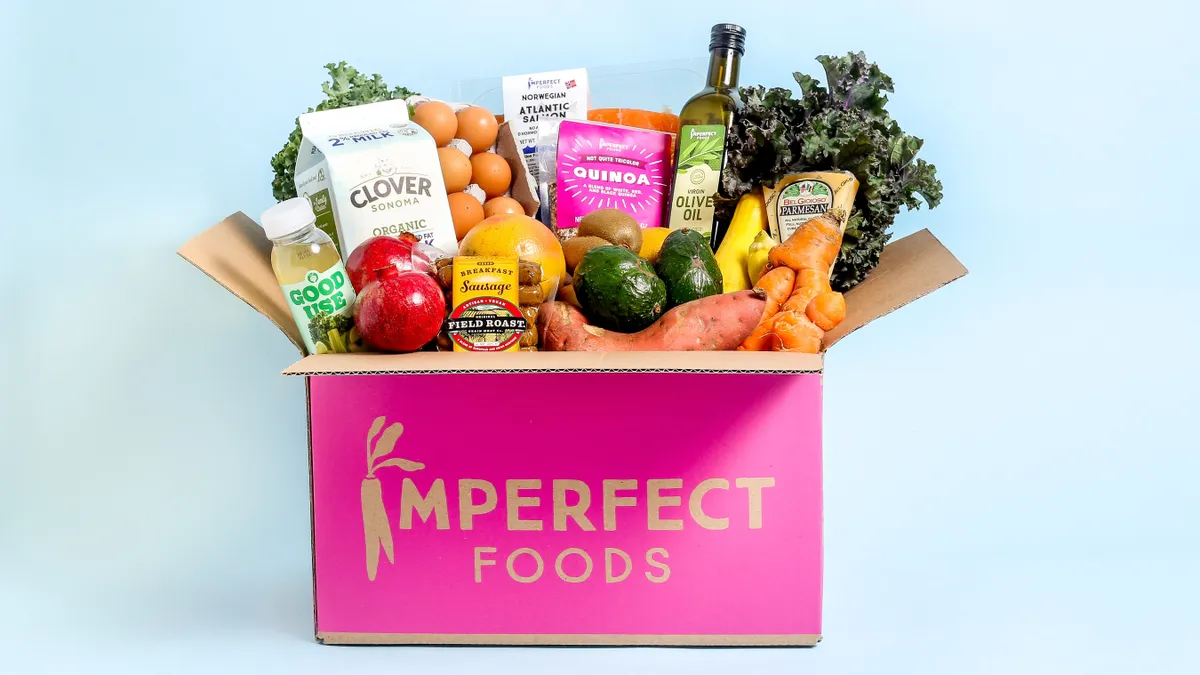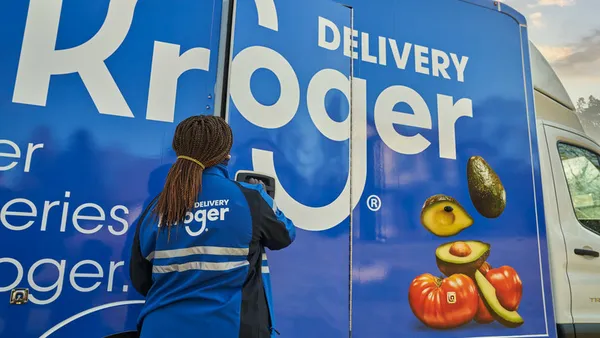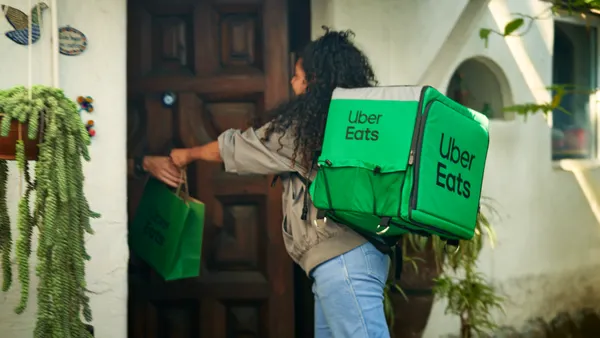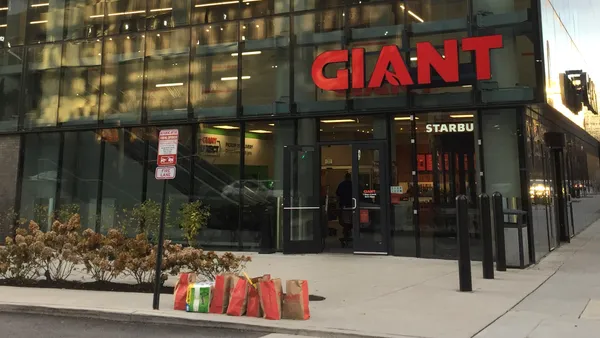Dive Brief:
-
E-grocer Imperfect Foods announced Monday it plans to become a net-zero carbon company by 2030.
-
Known for selling “ugly” and surplus produce, Imperfect Foods will focus on waste elimination, renewable energy and operational efficiencies to achieve its goal. This includes transitioning all of its delivery vehicles over to electric by 2027 and certifying six facilities as diverting zero waste to landfills by 2025.
-
The company is looking to cut its carbon footprint as it grows its presence in the grocery industry, which has seen more companies ramp up their commitments to greener initiatives.
Dive Insight:
As Imperfect Foods expands, it wants to convince consumers and the food industry that it's still committed to the sustainability principles it was founded upon. In 2020, the company saw triple-digit growth over the previous year and furthered its transformation from a regional produce-focused delivery service to a national full-service grocer.
With that growth, Imperfect Foods’ carbon footprint has increased since 2019, but its tons of carbon dioxide per $1 of revenue has decreased as it implements new measures to reduce emissions, according to its 2020 Impact Report.
As part of its net-zero carbon plan, Imperfect Foods is preparing to certify its first certified zero-waste-to-landfill facility in 2022, and will certify five more over the following three years. Imperfect Foods is also looking to boost its regional sourcing by 15% to cut down its truck emissions. Last year, the company converted its largest fulfillment center in Los Angeles to solar power, beginning a process that will see the company shift all of its six fulfillment centers to 100% renewable power by 2026. By 2027, Imperfect Foods plans to have a completely electric vehicle fleet.
To further reduce carbon emissions, Imperfect Foods said it will keep delivering orders once a week to each zip code the company serves. Last year, the company bought 7,921 tons of post-consumer recycled packaging and saved more than 52 million pounds of food, according to the press release. By composting and turning food into animal food, Imperfect Foods diverted more than 75% of its waste from landfills in 2020.
“The grocery industry's effects on climate change are undeniable... this commitment is a crucial next step in leading the industry forward,” Maddy Rotman, head of sustainability at Imperfect Foods, said in the announcement.
Imperfect Foods has teamed up with Watershed, a software platform with a climate program, to help the e-grocer keep track of its carbon footprint. The partnership has enabled the company to evaluate how it could make its operations more sustainable, Rotman said.
Bolstered by investors focused on sustainability, like investment management firm Hamilton Lane and venture capital firm Blisce, Imperfect Foods plans to use its recent funding windfall — $110 million, which it announced in February — to increase production capacity, ramp up its private label program, enhance the shopping experience and support farmers and suppliers.












